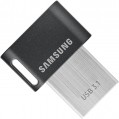Read speed
The maximum speed of reading data from the drive. The
higher this speed, the faster you can rewrite information from a flash drive to a computer disk, which is especially important when working with large amounts of data. In fact, the reading speed depends on a number of factors, including the interface bandwidth (see Connection interface), the design features of the drive and computer, the software used, system load, etc.
Material
—
Plastic. Inexpensive and at the same time quite practical material. Plastic allows you to create cases of almost any shape and colour — from classic to very original; yet it is strong and reliable enough to protect the flash drive during normal household use and even in some adverse situations. At the same time, the strength and impact resistance of plastic are relatively low, and in case of serious "troubles" — falling from a great height, stepping on a flash drive, etc. — such a case with a high degree of probability will be damaged. However, such situations rarely occur, and there are quite a few varieties of plastic, some of them are very durable. Therefore, this material in modern flash drives is extremely popular.
—
Metal. Metal combines high strength and reliability with a stylish appearance; flash drives made of this material look solid and are able to withstand fairly strong impacts that would damage a plastic product. Such cases can be heavier than plastic, but this cannot be called a disadvantage: the weight of modern flash drives is not so large that it creates inconvenience, and the massiveness of the product enhances the impression of solidity. But of the unequivocal disadvantages of metal, one can name a higher cost than plastic.
—
Rubber. Rubber is quite easy to work with and is suitable for creating complex shaped cases; many flash driv
...es made from this material are of the original design. The main practical feature of rubber is elasticity. This makes the case quite shock-resistant and allows you to endure strong short-term pressure without consequences (for example, if you step on the product). At the same time, rubber is somewhat more expensive than plastic, and the advantages mentioned in most cases are not of key importance. Therefore, this material is much less common.
— Skin. Leather by itself is not suitable as a body material; therefore, in this case, we are usually talking about a leather covering on a solid base — metal or plastic. See above for more details on these materials; as for the skin, this material gives the flash drive a rich and solid appearance, but it is not cheap, and from a practical point of view it does not provide any special advantages. Therefore, cases with leather inserts are the prerogative of fashion models, for which not only functionality is important, but also an expensive representative design.
— Wood. From a practical point of view, wood has no advantages over plastic, while it is noticeably more expensive and more difficult to manufacture — in particular, because special processing is required for moisture resistance and strength. The advantage of this material can be called an attractive appearance; in addition, some users consider wooden cases to be the most "green" or pleasant to the touch. As a result, such cases are rare — only in designer models of "flash drives", created in order to stand out among plastic and metal products.Waterproof
The presence
of water protection flash drive. Also in this paragraph, the specific level of such protection according to the IP standard can be specified, where the first digit is responsible for dust protection, and the second for water protection. The higher the number, the better the level of protection. So, the water protection indicator of 7 already allows us to talk about the short-term water resistance of the model. However, in most cases, manufacturers do not conduct global tests and do not mark their devices with an IP level, only assuring about some kind of protection. What it really is remains a mystery.

